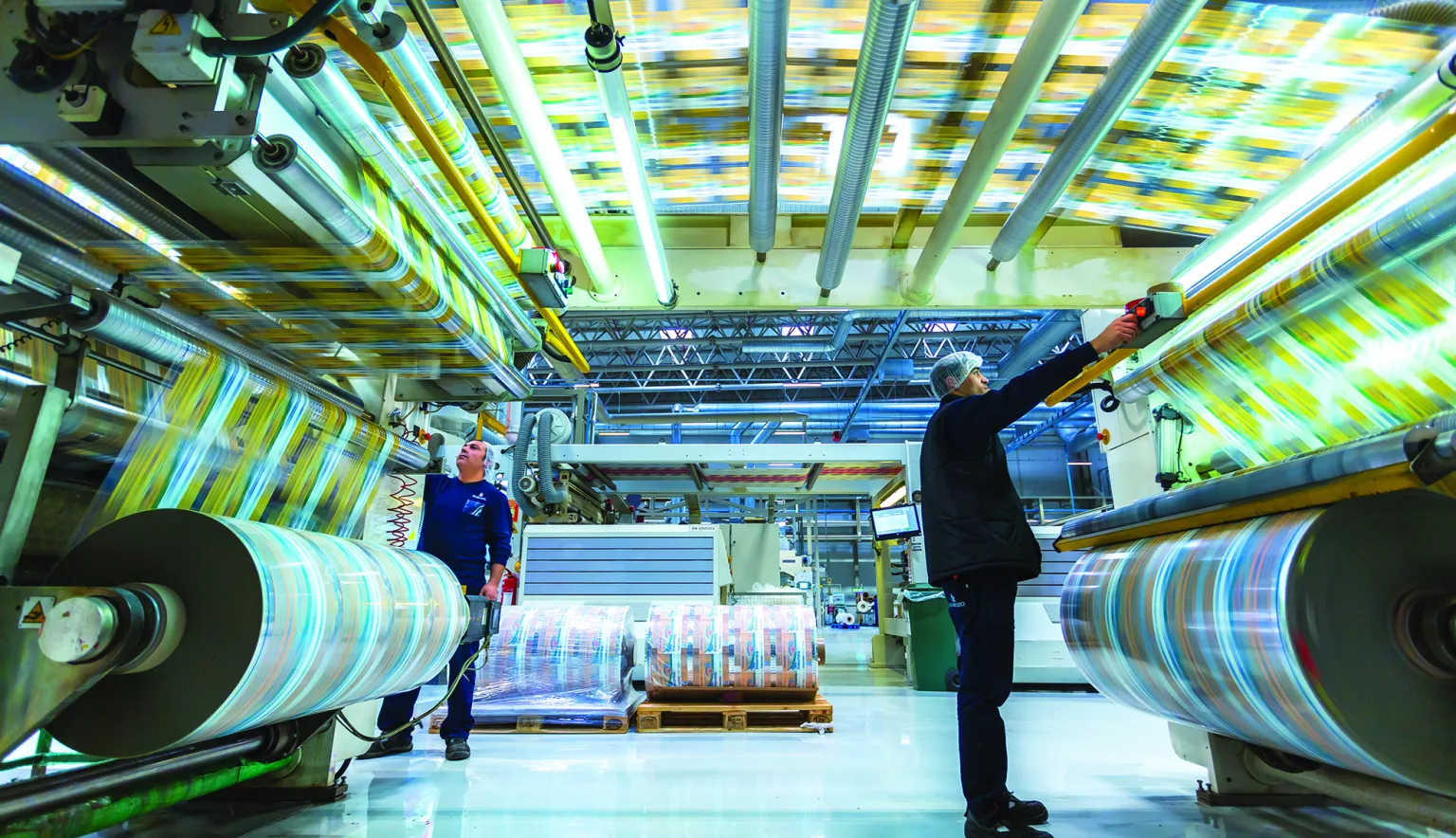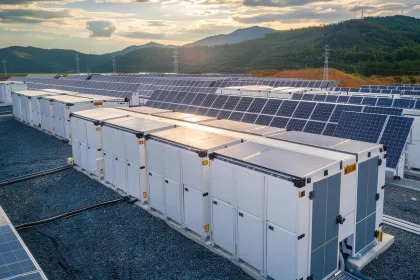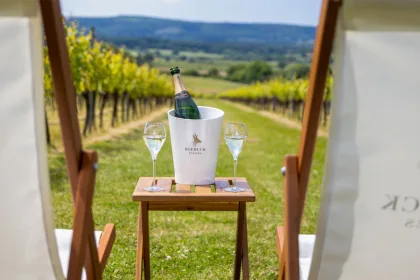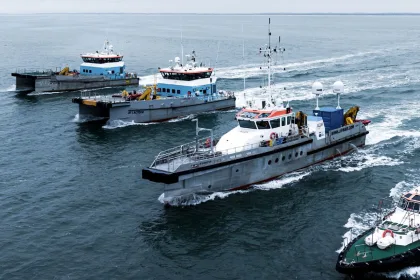Filip Lens, CEO at Korozo Group, discusses the importance of harnessing a greener approach in day-to-day operations as well as in the product design.
SUSTAINABILITY AT THE FORE
Turkey is a truly unique country. Acting as a bridge between Asia and Europe, its geographic location has led to close ties with both continents.
“There is a strong entrepreneurial culture in Turkey and companies are prepared to take risks and invest. There are many well educated and ambitious people in Turkey and as we know, people always make the difference.”
‘People always make the difference’. Those are the words of Filip Lens, CEO at Korozo Group. Korozo has become one of Turkey’s most renowned industrial organisations, exporting flexible packaging and film products to 88 countries globally.
Headquartered in Istanbul, there are over 2,700 people working across the entire company. As a result of its investments in research and development, new technology and infrastructure, Korozo is the largest flexible packaging producer in Turkey, and one of the largest packaging manufacturers in Europe with an annual production capacity exceeding 123,000 tonnes. Operating out of nine factories in Turkey and one in Belgium, the organisation strives to expand and has become a world recognised brand with sales and distribution offices in the UK, Germany and France, as well as in Russia.
Lens himself has a strong background in Flexible Packaging with prior roles in sales and marketing, operations, research and development, procurement, finance and people management. He is well acquainted with the Turkish packaging industry, having observed it first-hand prior to joining Korozo in late 2019 while working as a competitor in roles with Amcor and Bemis. “Over the last 20 years, I’ve seen Turkish packaging companies grow from strength to strength,” he explains. “Now that I personally work here, I can see why Turkish companies have been so successful.”
Lens believes that Turkey’s position is a considerable strategic advantage to operating; “Turkey is geographically located where Asia, Europe and Africa converge and it also has historical ties with Middle East, Russia, North Africa and the Balkans. These two advantages turn Turkey into a centre of attraction for companies operating internationally. Turkey also has a very sizeable and growing internal market which makes it attractive for international raw material suppliers to be present here, either with manufacturing and/or with large scale distribution. This is vitally important in our industry.”
Sustainability is at the heart of Korozo’s growth strategy is sustainability.
The company is committed to harnessing a greener approach and is set on reducing its impact on the environment, both in its own operations as well with respect to the products that are developed, sold and ultimately disposed off.
“Sustainability is an essential part of our corporate culture and values,” says Lens. “With this vision, we use our production experience of over 45 years to add value to our planet, economy, society, business partners and employees. We are committed to ensure that all our plastic packaging will be fully recyclable and thus being a solid contribution to developing circular economies.
“While developing new products and solutions to enhance our competitiveness, we make sure that these are environmentally friendly. We simplified film structures that are difficult to recycle, we increasingly use both recycled production waste as well as PCR (post consumer waste) in our product formulations. Our aim is to develop easy-to-recycle structures for all food and non food packaging applications including low, medium and high barrier films and laminates, for automated packaging lines as well as for pre-made bags and stand-up pouches. Korozo focuses on product design to help decrease the loss of food and other packed products.
We also invest in new technology to lower the impact on our environment. In this regard, one of our most recent investments was in our Çorlu plan where we capture solvents with high-tech air filters and recycle for re-use. This way we reduce solvent-based emission by 2,200 tonnes every year.”
Further, Korozo generates its own energy efficiently and sufficiently with two tri-generation units. Through this, the company decreased its CO2 emissions by about 1800 tonnes in 2020.
Over the next five years, we will constantly update our sustainability strategy in line with the demands and requirements of the day and taking into account the regulatory restrictions imposed in all the countries where we are present.”
Supply chain is another area where Lens and the company is constantly evaluating.
Korozo draws on a range of supply chain solutions ranging from direct supply from Turkey or offering a localised service via sales and distribution offices in Germany, France, the UK and Russia. The CEO explains that Korozo has a network of distributors which are located across the globe to market and supply products. The company also carefully selects raw materials and suppliers to ensure end to end availability of its products.
“Supply chain is a very important function within our industry,” Lens says. “Customer production output typically depends on the availability of packaging products, on time and in good quality. This also applies to hygiene components which are an integral part of the product. Our customers need to be able to react to volatile demand from retailers, which is difficult to forecast. Lead times vary between two and six weeks depending on the packed products, the season and other factors which can influence demand such as COVID-19 in 2020.”
Indeed, the coronavirus pandemic disrupted industries the world over as businesses had to adapt day-to-day operations almost overnight. Lens believes that despite the pandemic, his organisation has been fortunate. “It’s shown how vital resilience is. Despite the pandemic, demand has continued for basic products such as food and personal care products so we’re still enjoying a good year,” he explains. “That said, COVID-19 has still exposed the historic ways of executing projects need to be re-examined by introducing technology enabled remote trialling and project management processes. We need to ensure we develop these so that we are ahead of the curb when the next pandemic or any other event which will restrict the movement of people hits the globe.”
Lens values the importance of long-term relationships both with customers as well as with suppliers. “Depending on the size and the complexity of the customers, our relationships need to vary,” he explains. “For smaller customers, we are the one stop shop offering a full service to make sure customers have their products on time. With larger customers, our relations are more multifunctional and multidisciplinary and include joint development projects as well as supply chain relations.”
Suppliers also have a very important role to play in meeting the customer demands. Korozo has established strong relations over the years with suppliers in all raw material categories. Some raw materials are used in relatively small quantities, but they are nevertheless of strategic importance. Such is the case of adhesives and speciality resins where we work closely with Mitsui.
“Henkel has supplied lamination adhesives and cold seal to Korozo for over 20 years. Both companies have cooperated closely in the development of new products.
In addition to our cooperation in product development, procurement and post-supply service areas, Henkel also supports Korozo employees by organising trainings. These trainings are also important in terms of sharing professional knowledge and improving company employees.”
As well as engaging with key partners in the supply chain, growth is driven both organically and via acquisitions, with investments into existing and new plants central to the company’s rise over the years.
“We have invested extremely heavily in our plants in Çorlu and Izmir to support the growth of food and non-food packaging, as well as IML and hygiene components,” explains Lens. “In hygiene components, we have historically primarily supplied the baby nappies and incontinence markets, but we will also enter the feminine care market in 2021 in a very substantial way. We also plan to become a larger supplier to global players while sustaining our share in the Middle East and Africa.”
With future growth at the forefront of Lens’ thoughts, he adds that his firm is investing in all its key processes such as printing, coextrusion and lamination, in addition to finishing processes such as laser scoring and SUP capacity.
“We have recently conducted a five-year plan review, where we have made some deliberate choices with respect to end use categories where we want to focus,” he continues. “We are not planning to stop any activity abruptly, but rather increase specialisation and gain market share in certain chosen categories where we believe we can generate sustainable above average returns. These end uses typically require more sophisticated packaging involving all our key processes, especially multi-layer extrusion and/or high-end printing.”
In terms of its inorganic growth plans, Lens explains that Korozo will only target assets that will fit into the group’s overall strategic framework and that are complementary to its footprint.
Among its priorities are the development of the Vitrapack brand, known for its quality and currently serving the Benelux markets. Lens wants to use this footprint as a platform into neighbouring France and Germany, a move which will also involve transferring technologies from Turkey in order to provide the full value proposition to customers in the region.
Looking ahead, the CEO is optimistic about the future and is working towards maximising efficiency and growing at scale.
“We don’t really plan to diversify because instead we’d rather increase our focus,” he explains. “It’s important that we develop the right products which add value to our customers. Sustainability is key, without losing sight of the basic functionalities of packaging which is to protect products.”
And as we bring our conversation to a close, Lens reaffirms the importance of workplace culture and developing its most critical assets – its employees.
“We’ve developed several initiatives to increase training via our Korozo Academy,” he states. “We must ensure there is a healthy mix of internal promotions and new talent from outside the company to create the necessary mix of skills needed for the next decade.”































